Announce protest actions, general chit chat or give your opinion on issues we haven’t covered for the day.
Moderation rules are more lenient for this section, but try and play nicely.

Hallertau presents
The How Not To Be An Asshole Live podcast
A night of politics, music and shit talking.
Featuring special guests:
Nadia Filistin
Tanu Gago (Faf Swag)
Ken Arkind
And the musical Stylings of Sigrid Yiakmis
$10 whammy bar, 17th of march 8 pm
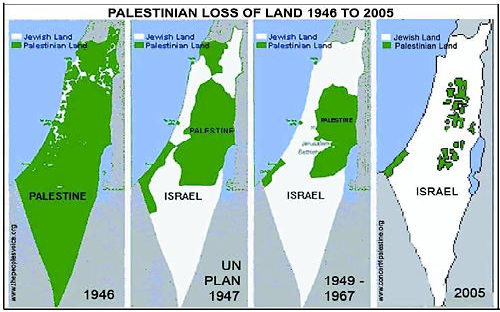
When the history of the 20th and 21st centuries is written by future historians they will remark on the astonishing steadfastness of the Palestinian people in the face of the relentless brutality and oppression they are suffering at the hands of the Israeli army.
Last Sunday I saw Emad Burnad’s profoundly moving film “Five Broken Cameras” documenting his local community’s struggle against Israeli occupation, the theft of their land by Israeli settlers working hand-in-glove with the Israeli state and the viciousness of Israeli army responses to any sign of Palestinian resistance.
Historians will ponder how it was that the Israeli regime could get away with such blatant racism and crimes against humanity for so long. They will contrast South African apartheid which was established in 1948 based on oppression of black South Africans with Israeli apartheid which was similarly established in 1948 based on oppression of Palestinians.
South African apartheid lasted till 1994 whereas Israeli apartheid continues more than two decades later. It will not last – it is already on borrowed time, supported only by a strong but steadily waning US empire and a host of quisling Arab regimes which are hated by their people.
Where does New Zealand fit into all this?
Just as we punched above our weight in support of the struggle against South African apartheid we can do the same for the struggle against Israeli apartheid.
It means giving strong support to the boycott of Israel spearheaded by the BDS (Boycott
Divestment and Sanctions) movement.
It means opposing vile New Zealand government policies which favour Israel over Palestinians.
It means rejecting the cynical calls from the likes of Foreign Minister Murray McCully and the US for direct negotiations between the Palestinian Authority (which has no mandate) and Israel’s apartheid regime.
It means insisting the way forward is to demand that Israel abide by UN Security Council resolutions and international law.
It means calling a spade a spade and a racist a racist.
It means standing with the Palestinian oppressed against the Israeli oppressor.
Help support the struggle:
In the studio E tu’s National Director of Campaigning and convener of the Living Wage Movement – Annie Newman
On phone we have Susan Guthrie, economist with the Gareth Morgan Foundation
On Skype we have Dr Eric Crampton from the right wing think tank, NZ initiative
And also on Skype we have Bill Rosenberg, the chief economist at the Council of Trade Unions

Greenpeace have called for a mass civil disobedience action against the Oil Conference at Sky City on the 21st of this Month.
Here are 3 reasons why every citizen concerned with climate change needs to attend and put themselves on the frontline between those who can see through the madness of free market pimps like the oil industry and those who would sacrifice tomorrow for a profit today.
1: Our Hemisphere’s Temperature Just Reached a Terrifying Milestone
Since this post was originally published, the heat wave has continued. As of Thursday morning, it appears that average temperatures across the Northern Hemisphere have breached the 2 degrees Celsius above “normal” mark for the first time in recorded history, and likely the first time since human civilization began thousands of years ago.* That mark has long been held (somewhat arbitrarily) as the point above which climate change may begin to become “dangerous” to humanity. It’s now arrived—though very briefly—much more quickly than anticipated. This is a milestone moment for our species. Climate change deserves our greatest possible attention.
2: Greenland’s ice melt accelerating as surface darkens, raising sea levels
Greenland’s vast ice sheet is in the grip of a dramatic “feedback loop” where the surface has been getting darker and less reflective of the sun, helping accelerate the melting of ice and fuelling sea level rises, new research has found.
The snowy surface of Greenland started becoming significantly less reflective of solar radiation from around 1996, the analysis found, with the ice absorbing 2% more solar energy per decade from this point. At the same time, summer near-surface temperatures in Greenland have increased at a rate of around 0.74C per decade, causing the ice to melt.
This winnowing away of the ice, exacerbated by soot blown on to the ice from wildfires, means that Greenland’s ice is stuck in what is known as a “feedback loop” that will make it ever more vulnerable to warming global temperatures. The study predicts that the ice surface reflectivity, or albedo, will drop by 10% or more by the end of the century, which will trigger further melting.
3: The mercury doesn’t lie: We’ve hit a troubling climate change milestone
Thursday, while the nation debated the relative size of Republican genitalia, something truly awful happened. Across the northern hemisphere, the temperature, if only for a few hours, apparently crossed a line: it was more than two degrees Celsius above “normal” for the first time in recorded history and likely for the first time in the course of human civilization.
That’s important because the governments of the world have set two degrees Celsius as the must-not-cross red line that, theoretically, we’re doing all we can to avoid. And it’s important because most of the hemisphere has not really had a winter. They’ve been trucking snow into Anchorage for the start of the Iditarod; Arctic sea ice is at record low levels for the date; in New England doctors are already talking about the start of “allergy season.”
This bizarre glimpse of the future is only temporary. It will be years, one hopes, before we’re past the two degrees mark on a regular basis. But the future is clearly coming much faster than science had expected. February, taken as a whole, crushed all the old monthly temperature records, which had been set in … January. January crushed all the old monthly temperature records, which had been set in … December.
The fight back must start now. Bring everyone to Sky City on the 21st of this month.
Last month, Bryce Edward missed the biggest issue on cannabis.
Total political cowardice.
The issue has been argued and those calling for the continuation of prohibition have lost.
Regulated cannabis markets in American States are clearly showing a vast improvement in almost every single indicator. Vast sums of taxation are being created, lower negative social stats are occurring and Police arrests drop dramatically.
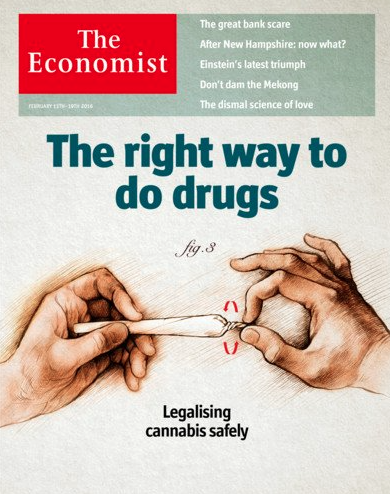
So why are we dragging the chain here in NZ when the home of the war on drugs is calling a truce?
We can’t even get Helen Kelly medicinal cannabis for God’s sake!
We need a regulated cannabis market and we need one now. As dairy collapses, our next new cash crop should be Hemp.
Building a Hemp industry that produced hemp products and cannabis for medicinal and recreational use would create jobs, create taxation, limit social harm, lift tourism, counter our agricultural climate change gases and shut down a vast money making operation for organised crime.
The only thing missing is actually political courage. The tiny steps that Dunne is taking are a joke.
Even the bloody Australians are ahead of us!
We have no real political leadership on this because of political cowardice.
The people are ready but the political class is missing in action.

I stayed in a place recently for a rest. It was beautiful peaceful and idilic, out in the country with animals and greenery it was almost the best of NZ, almost.
The one thing that kept catching my eye like the upturned edge of an otherwise perfectly placed Picasso was the smattering of unexplained and seemingly unvalued use of Maori Symbols and words.
As the days went by in a earthy haze I kept coming back to this it interrupted my zen decentered my chi or whatever I can’t explain it but let’s just say in this place it felt like the equivalent of a waste paper basket in the wrong corner of a feng Sui hotel.
Eventually I asked the staff about this what I now thought to be “tokenism”. I was reassured that the name of the place which was Maori was a gifted to the place on their opening by a prominent kaumatua in the area and therefore rightfully theirs to use.
I thought on this for a while almost satisfied with the answer, almost. A gift I thought well you can’t argue with that it hasn’t been adopted in a funding bid or PC attempt known to some as cultural misappropriation and to others more bluntly as theft.
So they hadn’t nicked it so why did it still bug me so much. Perhaps it was the white washing of my brain that had me stumped for so long going round in western descriptions of giving as a selfless act based on early Christian ideas about denial. Inside of these understandings of gifts there didn’t seem to be anything wrong with the scenario so why then did I feel abit icky just outside of my intellect.
On day three Still perturbed and not having attained the superior enlightened state I had hoped for I sought out a staff member who is Maori speaks and understands Te reo and is a wealth of wisdom unlocked only in long conversations littered with examples and stories as to never give just information but rather to provide alongside the context that made it knowledge.
That’s what I had decided I needed and lacked, I had the information but without the context it was not a knowing but rather still a quandary to me.
As we talked he patiently explained the difference in understandings of the concept of giving in pakeha and Maori culture and I began to see how a concept that can’t be fully translated as a single English word can detract from what is complex and sacred beyond our limited western understanding.
The gifting of the name he said was not like a birthday present and was probably translated better as a bestowing of a name. Bestowing unlike gifting does include responsibility or expectation on the receiver this “gift” had strings and perhaps it was these unseen strings that had me wound up in knots.
He said the name was bestowed as a blessing an endorsement and a directive for the place, its meaning a blessing to be honoured in word and deed so it could then honour all who passed through that place.
Fascinated I asked him how one might honour this bestowing in word and deed as a staff member and therefore recipient of this gift/blessing etc.
He said I would know if it was honoured by asking the staff what it meant and how they acted out its meaning in their interactions with guests and their day to day running of the place.
He looked kind of sad then and walked off to tend the vegetable patch he’d put in. I felt bad for him as much as it annoyed me he must find it so much harder to see the disregard for the culture he carries so close to his heart and central to his understanding of the world.
So I waited till some senior staff were about and looking over at my helpful friend I asked the room loudly what they knew about the name of the place and how it was reflected in their work and lives.
The awkward silence was filled seconds later with a flurry of justifications and the repeated story of the gift.
So I asked to room again equally interested to see if anyone would promote the lone Maori staff members knowledge of his culture above their rank in the hierarchy and divert the question to him.
But no the senior European staff members continued to blunder their way thru PC quotations spewing out random and inapplicable Te reo in a bid to assert their cultural awareness and eventually muttering down to silence as one of them suggested googling the meaning. After a bad half translation from Google the conversation ended with a lot of “ahh I knew that” “yes that’s what I thought” and a bunch of white nodding all round.
But the only head I felt bend under the weight of this awkward and disrespectful shambles so far from any display of honour I knew of was that of my Maori friend and staff member as he bowed forward and once again excused himself to be in the garden.
This story doesn’t have a happy ending although the beans my friend was tending and the cigarette that followed seemed as salve to the freshly opened wound I’d just shaken salt on for him.
It doesn’t really even have an ending as this story plays out every day in places filled with the best of intentions. If you or your service or workplace have a smattering of Maori words and symbols as
I hope you do please try to honour this blessing to us by viewing it as a bestowal rather than a no strings gift. Know what the words mean and how they relate to you or your service, work, life ect.
To put it in the most English way I can think of people apply the nana Christmas jumper principle.
You know when your nan gives you something hideous for Christmas and you make sure you keep it stored away to wear at her house later just to see her wrinkly smile? This is honouring of your nan, a well known European custom of orange knit clad youngsters itching their way through Christmas dinner in a jumper that doesn’t quite fit to honour a gift that has strings of love you wish to reciprocate.
So if you got through 12 Itchy Christmases’ in too bright jumpers feeling a little uncomfortable and embarrassed about your sudden likeness to David Bain then you can get thru the time it takes to research and honour the Maori culture that is gifted but better explained as bestowed on us and the places we live and work.
Ruby is 24 years old, sex worker and social activist. Lives in Auckland
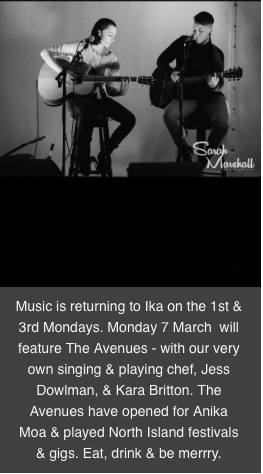 The first of our lunchtime lectures this week, featuring Professor Tim Hazledine, was a great success. The series continues with a slight change of dates. Professor Jane Kelsey, who was due to talk about The FIRE Economy on 16 March will now feature on 13 April (her presence is required at the TPPA hearing in front of the Waitangi Tribunal). So our next lecture will be Assoc Prof Susan St John on Weds 30 March -The Elephant in the Room – why we need to talk about superannuation.
The first of our lunchtime lectures this week, featuring Professor Tim Hazledine, was a great success. The series continues with a slight change of dates. Professor Jane Kelsey, who was due to talk about The FIRE Economy on 16 March will now feature on 13 April (her presence is required at the TPPA hearing in front of the Waitangi Tribunal). So our next lecture will be Assoc Prof Susan St John on Weds 30 March -The Elephant in the Room – why we need to talk about superannuation.
If you haven’t yet booked for Jane’s and Susan’s lectures please do – a lovely lunch, excellent discussion & great company is guaranteed.
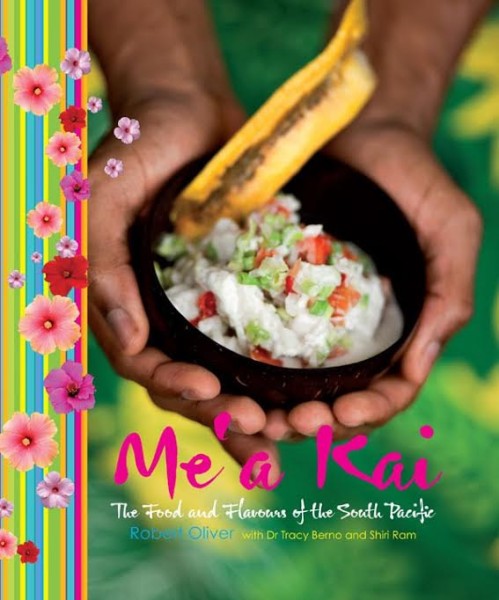
Robert Oliver & Ika prepare a Feast for Fiji next Sunday – all proceeds to cyclone relief.
“Ika” means fish in many Pacific languages, but it was from Laila’s Fiji childhood that the name Ika found its way to our place here. So we’re joining with another Suva kid – Pacific cuisine supremo Robert Oliver – to give something back to the islands that gave us our name.
Our Feast for Fiji on Sunday 13 March is a chance to say “vinaka” – to those who have so warmly hosted so many kiwis.
Robert’s beautiful books, tireless advocacy for Pacific ingredients and recipes, television shows and demonstrations have exposed the world to the secrets of Pacific cuisine. On Sunday 13 March he’ll be working his magic with the Ika team to prepare a Feast for Fiji. Taste some fine Pacific food, matched with selected wines and other beverages – all covered by your donation of $85 (or more if you choose). We will also be holding a small auction of some beautiful art work and other desirable things. (Please email us if you have an artwork or special treat you’d like to offer for this).
We are working with suppliers to cover the costs of this event – so all proceeds will go to where they are needed most, working alongside the FRIEND Fiji Foundation, a local rural economic development organisation active in some of the worst affected areas of Viti Levu and directly involved in relief efforts to restore homes and livilihoods. Robert has been closely involved with FRIEND’s work.
Book today, and please forward this email to others who may be interested.

“No increase for most benefits because of a supposed -0.25% rate of inflation is just a gimmick by the Government to keep the poorest people poor,” according to “Closing the Gap” Income Equality Aotearoa New Zealand Inc National Secretary Peter Malcolm.
The Minister of Social Development, Anne Tolley, has said that benefit rates will be maintained this year despite a fall in the CPI.
“This makes it sound like a magnanimous gesture by the government,” says Malcolm
“But long term invalids, those on benefits because they are sick, those on the disability allowance, and the unemployed can’t afford to spend money on things used to calculate inflation.
“Overseas holidays packages, international airfares, newly built house prices, hybrid electric cars, new TVs, property valuation services, burglar alarms and monitoring, house cleaning services, heat pumps and frozen prawns are things that beneficiaries can’t contemplate on their budgets.
“Yet many of these that have come down in price, are used to offset the much increased prices of power, rates or rents, and food that beneficiaries have to pay!” said Mr Malcolm.
“To freeze their benefits is simply a way of perpetuating the inequalities in our society and ensuring those at the bottom will always be the poorest of the poor.
“And what’s worse is that freezing these benefits this year follows pitiful increases last year.”
From 1 April 2015, the invalid pension (now called “supported living”) increased by only $1.33 for a single person and $2.22 for a couple. The sickness benefit (now combined with the unemployment benefit and called “Job Seeker”) rose by only $1.07 for a single person and $1.78 for a couple. The Disability Allowance rose by only 31 cents.
“So these are now the only compensation over two years that the poor gets to help the astronomical increases in their absolutely basic living costs,” Mr Malcolm said.
“I challenge Minister Tolley or any of her colleagues to live on these inadequate benefits. She would get a shock to see how these beneficiaries have to live.”
“The Government again makes it sound as if they are helping these people with their $25 increase from 1 April this year.
“But this is only for people with children living at home. Inadequate as it is in addressing child poverty, these families at least get other support for having children with them,” Mr Malcolm said.
“But those who are the poorest of our poor are left even worse off, with their benefits frozen and pathetic increases last year that do nothing to cover their increased costs over two years.”
The Governments argument is apparently “keeping these benefits low will encourage people to get off them”. Research shows that in general this is nonsense.
“This Government should be ashamed of the inequalities they are creating and the sort of New Zealand that will result in our future,” Mr Malcolm said.

From April 1st, minimum wage earners will take home an extra $18 in their weekly pay packet. That princely sum might buy them around nine litres of petrol, a movie ticket, or two packets of fancy sausages. That’s assuming they don’t need it to put towards rent, bills, or debt.
Closing the Gap spokesperson Peter Malcolm says the increase of 50 cents to $15.25 an hour falls well short of what is needed to address inequality in New Zealand.
“It’s better than nothing, but not much better,” says Malcolm. “ And it leaves minimum wage workers well short of what’s needed for them to participate fully in society.”
That figure was also revised upward this week when the Family Centre Social Policy Research Unit announced the living wage has been increased to $19.80 an hour for 2016.
The living wage is the income calculated to be necessary to provide workers and their families with the basic necessities of life.
“The government tries to spin the increase in the minimum wage as being generous and aimed at preventing too much pain to business. But what about preventing pain for the hard working citizens of New Zealand?
“If the living wage was implemented across industries and professions – such as in caregiving – then all employers would be in the same boat. I think New Zealanders would prefer workers were given more money in their pockets than the off shore corporates which dominate the retirement industry, for example.
“The stinginess of the minimum wage increase is further highlighted by the fact it is going up 50 cents an hour while the living wage has increased by 55 cents an hour. That means low paid workers are falling even further behind in society.
Closing the Gap asks kiwis to put pressure on employers to pay the living wage.
“A good start would be to curb the salaries of those at the top. The salaries of people who wouldn’t notice if they received $18 an hour more, let alone $18 a week, should be reined in so ordinary New Zealanders can work to support their families.”
African community leaders have today expressed deep disappointment with the Police response to the research report on African youth experiences with the police and justice system.
Although the Police have said that they engage with African community leaders, they have failed to engage with African youth impacted by Police actions in a meaningful manner. Marvin Kamau, one of the forum organisers, says that the perspectives of the leaders with whom Police have engaged are not representative of the experiences of African youth.
“Just as my views are not representative of all African youth, the perspectives of Gregory Fortuin and Anwar Ghani, are not representative of the lived experiences of African youth, and they are not in a position to speak on our behalf regarding the Police actions towards us”, he says.
Prominent Criminologist and Senior Lecturer, John Buttle, says that all research has limitations and is relatively easy to attack from one perspective or another. John also states that any evidence that is not favourable to the Police is often attacked as a means to silence disagreeing voices.
“Police tend to treat independent research on racial profiling as a threat and in a very conscious attempt to suppress and discredit it rather than engaging in a productive manner. Recently Commissioner Mike Bush suggested that the New Zealand Police culture had an unconscious racial bias that the Police recognise and are prepared to address. If that was the case the appropriate response would be to acknowledge this research and to listen to what is being said. It is a great shame that in doing this it would seem the so called unconscious bias is very conscious indeed”, says John Buttle.
The development of this research has been supported by a number of community leaders with whom the police claim to have a positive relationship. Below are comments from African community leaders in response to the statement put out by the Police in reference to the research on African youth and their experiences of the police and New Zealand justice system.
Kizito Essuman, President of the African Communities Forum Inc (ACOFI) says that “The outcome of the research on African youth experiences with the Police and the Justice System comes as a shock to the community. There is no doubt that over the past few years we have been working tirelessly as a community to develop positive relationships with the Police. It is very unfortunate that the positive relationship we have with the NZ Police in the boardrooms, festivals, workshops, conferences and other activities is not quite the same on our streets according to the research findings. I acknowledge and commend the hard work by our Police Officers and various community leaders but any kind of discrimination by some Police Officers should not be tolerated in our society.
Even if there is only one person coming out to share his or her experience about Police abuse on the street, one case is too many at this civilised age. These are real stories by real people in our community and cannot be swept under the carpet. The issues or concerns raised by these young people in the research need to be addressed. This will only help build a better relationship with the Police.”
Tuwe Kudakwashe, a prominent African community leader agrees: “Although I have never been stopped by the Police in my almost 15 years in New Zealand, I have heard some heart-breaking and tear-jerking stories where our African youth have been stopped, harassed and mistreated by the Police. If these research findings are anything to go by, our respected Police, as an organisation, must do something and put their house in order. They need to live up to their organisational Values, Vision and Mission. We cannot afford to have our innocent youth being harassed, cajoled and mistreated by the authority that is required, at law, to offer an un-compromised protection. Based on the findings of this research, I would like to condemn, in the strongest terms, some of the treatment narrated and received by our African youth, from the Police.’
Last, but not least, I am a researcher in my own right, and I am a firm believer in professionally carried out research. I therefore have no doubt about this current research that was done by one researchers at one of New Zealand’s leading universities.”
Associate Professor Love Chile, African community leader and academic concludes that: “The issues raised in the report African Youth Experience with the Police and the New Zealand Justice System are very important to the African community not just in Auckland but across all New Zealand. These issues must be discussed rather than debated. The focus of the African community is not to get into a tug of war with the Police. The report is based on research that has been done with great integrity and our focus should be on the substantive issues raised in the report. Obviously any institution that comes under the spotlight in a report such as this would like to protect their image. However, the focus of our conversations should be on how African youth can be supported to reach their full potential as part of the New Zealand community.
The reality of the issue of racism in New Zealand is not in doubt and we dismiss it at our peril. Some of us have been involved in working with a number of institutions in New Zealand including the Police, the justice system, CYFS, schools and other establishment for over 25 years to educate ourselves about ways in which our youth can be best integrated into New Zealand society as full and responsible citizens. These institutions must accept responsibility to continue to educate themselves about the issues raised in this report rather than try and discredit the research as ‘unsubstantiated claims from anonymous respondents’.
We will be discussing these issues at the meeting at the Wesley Community Centre in Mt Roskill tomorrow Saturday afternoon. It is important that the Police and other institutions come along to listen to the voices of African young people and other people in the community about these issues.”
The research report can be accessed online from 6 March 2016 through the Africa on My Sleeve webpage: www.africaonmysleeve.com
Multicultural New Zealand commends young African Kiwis and calls for more resourcing for NZ Police
Multicultural New Zealand finds the report on African youth experiences with the Police and the New Zealand justice system disturbing and wishes to see more resources directed to NZ Police.
“We would like to acknowledge and commend the young individuals/people who shared and spoke out about their experiences – Tū mai, tautokona te kotahitanga o ngā iwi – kaua e tū atu! (Stand Up for Race Unity – don’t be a bystander!),” said Alexis LewGor, MNZ President.
“However MNZ and our 18 regional council members have also worked closely with the New Zealand Police for 20 years. We commend the significant effort and investment being directed to engaging with ethnic communities by New Zealand Police personnel.”
“We need more resources allocated to the NZ Police – and other government agencies – to engage with ethnic communities across New Zealand to ensure Police remain responsive to the needs of all New Zealanders,” said Ms LewGor
“We will continue to work closely in partnership with New Zealand Police to address the issues raised in the report.”
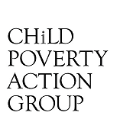
Child Poverty Action Group is calling for this Government to rethink their rental housing strategy and instate mandatory a Warrant of Fitness (WoF) for all rental properties across New Zealand to save children’s lives and lessen their illnesses.
In June 2014 the Government reported on a trial Housing WoF with Housing New Zealand properties, and found only 4% met all standards. In July 2015 they backed down on a policy to enforce regulations for all rental houses to meet the same standards. Instead the Residential Tenancies Act Amendment Bill is a diluted version of the original plan: all rented properties must have a smoke alarm and be insulated by 2019, but there is no WoF to ensure compliance.
Professor Innes Asher, Health and Housing spokesperson for Child Poverty Action Group (CPAG) says that the Bill is a “small step in the right direction” but it falls desperately short in terms of providing all New Zealand children the equal opportunity to thrive. In her oral submission, Professor Asher stated that the current Bill was “dangerously inadequate” considering the numbers of children admitted to hospital as a result of substandard housing, with preventable diseases like pneumonia and bronchiectasis (permanent lung scarring), which can cause an early death.”
The Bill also avoids the fundamental issue that some houses simply are not able to be insulated and should therefore be considered ‘not fit for purpose’. CPAG considers that a humane, child-centred approach to the regulations is required, making landlords responsible for providing essential amenities including provisions for safety, warmth and ventilation.
Despite the recent insulation subsidies provided, the reach has not been nearly not wide enough. Most tenanted rental houses remain uninsulated. Unsurprisingly, it is mostly homeowners who have taken advantage of the insulation subsidies. According to CPAG Law and Housing spokesperson Frank Hogan, “Most poor families live in private rental accommodation.” So while it remains voluntary for rental property owners to insulate their houses, children of low-income families continue to suffer in the worst conditions, as adequate accommodation becomes less and less affordable.
Now Building and Housing Minister Nick Smith has taken a complete turn against a housing WoF scheme in light of recent submissions for the Residential Tenancies Amendment Bill. He considers it to be too costly and that landlords would be subjected to the scrutiny of “clipboard Charlies”.
Frank Hogan says that with the $1 billion of taxpayer money going into the accommodation supplement, there must be some form of regulation to ensure that that money is well spent and that children are benefiting. According to Hogan, “Rentals are almost twice as likely to be in poor condition as owner-occupied homes. This is unacceptable and New Zealanders should expect better value for public expenditure. Families need homes that are both healthy and affordable to provide a stable environment where children can thrive.”
“If car owners are expected to pay for WoFs as a public safety measure, taxpayers should expect that rental owners do the same with their houses,” says Hogan. “The owners should pay.”
But Nick Smith dismisses any need for a WoF on the flimsy grounds that renters will eventually foot the costs. This is why Child Poverty Action Group state that Government needs to address housing conditions and housing affordability in tandem.
Child Poverty Action Group recommends that as well as implementing a housing WoF to improve children’s lives, the Government should develop a ten year national plan to overcome the shortage of affordable housing.
For more information visit: http://www.cpag.org.nz/campaigns/healthy-and-affordable-housing/faq-document/
www.cpag.org.nz